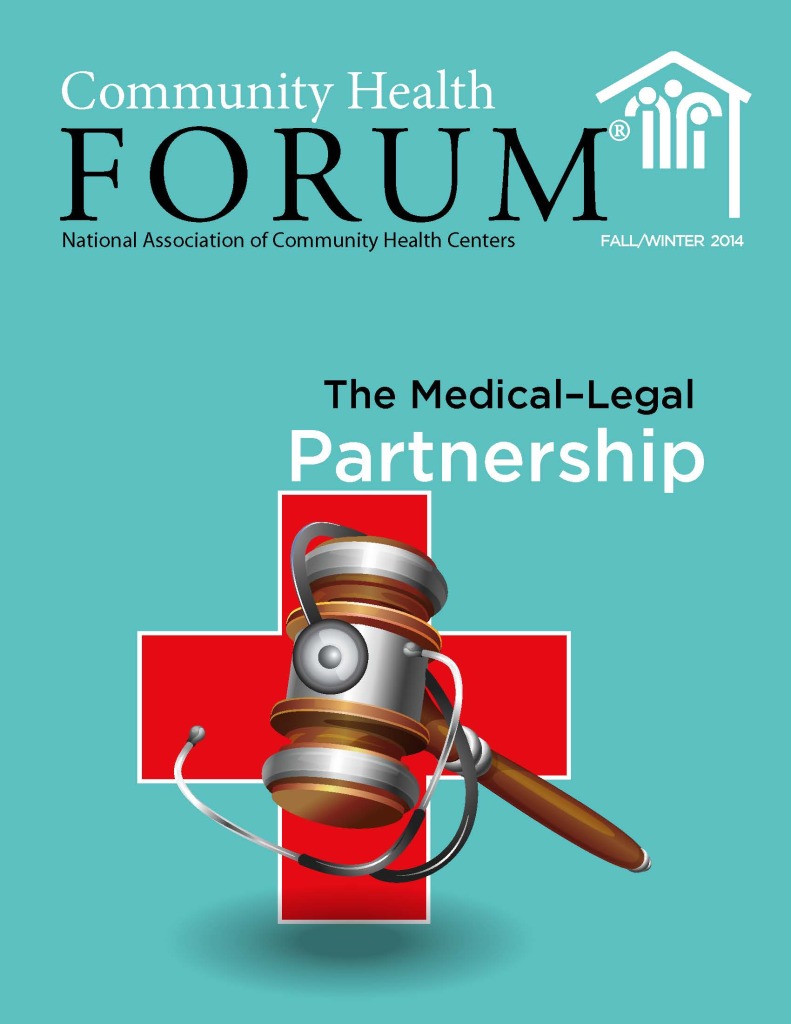How do partnerships with civil legal aid organizations help community health centers better care for their patients? That question is at the center of three new articles about medical-legal partnership published in the fall/winter edition of Community Health Forum, the magazine of the National Association for Community Health Centers (NACHC).
The Medical-Legal Partnership Approach to the Social Determinants of Health
By Joel Teitelbaum, JD, LLM
Download the full article.
Often when health care providers screen patients for social factors that impact health, they are powerless to do as much as they would like to help remedy their patients’ problems. But reframing those patient problems can help. Quite often, the problems are legal ones where an expert is already trained to address them.
Health + Legal Care – An RX for Better Health Outcomes
By Kate Marple
Download the full article.
Health center CEOs and medical directors from Kokua Kalihi Valley (Hawai’i), Erie Family Health Center (Chicago), Whitman-Walker Health (D.C.) and Eskenazi Health Midtown Community Mental Health (Indiana) share their experiences of how working with civil legal aid improves patient engagement in care and health outcomes, and how these partnerships tackle the root causes of illness.
A History of the Medical-Legal Partnership Movement
By Ellen Lawton, JD
Download the full article.
The idea of healthcare and civil legal aid working together to address health problems is not exactly new. In 1967, Dr. H. Jack Geiger hired a lawyer at Delta Health Center in Mound Bayou, Mississippi, to address patients’ food and housing problems. In the 1980s, health care and civil legal aid worked together to address the end of life needs of people with AIDS. Now with 262 health care institutions practicing integrated medical-legal partnership, it’s an idea whose time has come.

